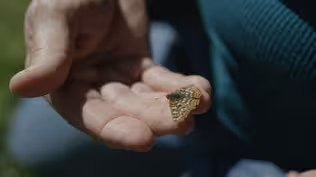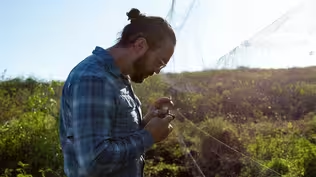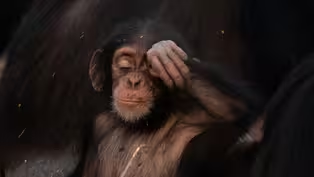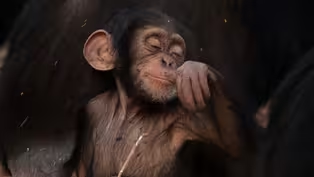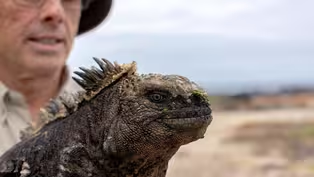
The Edith's Checkerspot Butterflies and Climate Change
Clip: Episode 1 | 2m 56sVideo has Closed Captions
Camille Parmesan tells us how the climate sensitive Edith's Checkerspot helped NASA.
Camille Parmesan gives us an insight into the lives of the climate sensitive Edith's Checkerspot. She tells us the story of how this climatic connection led her to discover a survival pattern across The Rockies. The butterflies were moving up the mountains and away from the equator, seeking environments with cooler climes. This was a key cog in helping reveal the secrets of our changing climate.
Problems playing video? | Closed Captioning Feedback
Problems playing video? | Closed Captioning Feedback

The Edith's Checkerspot Butterflies and Climate Change
Clip: Episode 1 | 2m 56sVideo has Closed Captions
Camille Parmesan gives us an insight into the lives of the climate sensitive Edith's Checkerspot. She tells us the story of how this climatic connection led her to discover a survival pattern across The Rockies. The butterflies were moving up the mountains and away from the equator, seeking environments with cooler climes. This was a key cog in helping reveal the secrets of our changing climate.
Problems playing video? | Closed Captioning Feedback
How to Watch Evolution Earth
Evolution Earth is available to stream on pbs.org and the free PBS App, available on iPhone, Apple TV, Android TV, Android smartphones, Amazon Fire TV, Amazon Fire Tablet, Roku, Samsung Smart TV, and Vizio.
Buy Now
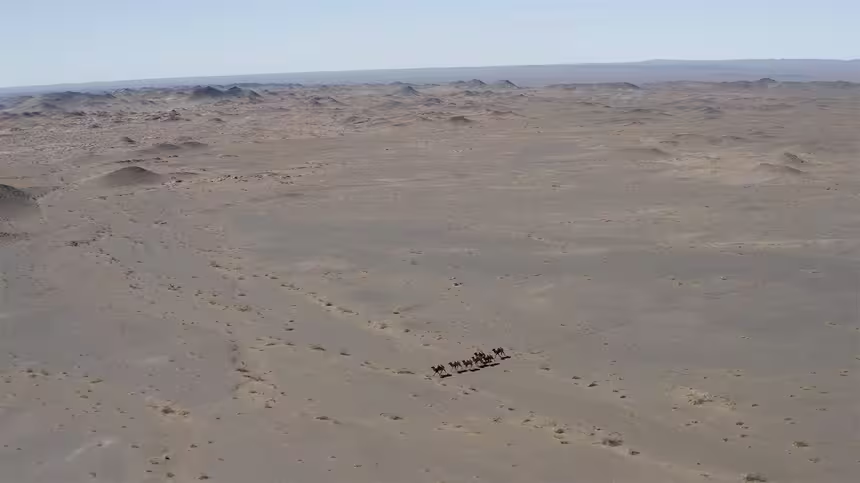
Evolution Earth
Traveling to the far corners of the world, we discover the extraordinary ways animals are adapting to our rapidly changing planet. We witness nature’s remarkable resilience, as our perception of evolution and its potential is forever transformed. Read these interviews with experts to learn more.Providing Support for PBS.org
Learn Moreabout PBS online sponsorship[Shane] Man, insects are cool.
They live in this whole other world, like, right beneath our feet.
♪ The checkerspots go through this cycle in the same place year after year.
[Camille] These butterflies are very sedentary.
They live in one little spot.
[Shane] And if the conditions aren't just right... they simply die.
Camille told me it's this fragility that first sprung into mind when NASA-- yeah, that's the space agency-- put a call out as part of their first climate science program.
They wanted to know if animals might be responding to climate change.
I thought Edith's checkerspot because we know it's very climate-sensitive.
[Shane] So what did Camille do that was so special?
Well, it's simple.
She gathered data.
I mean, like, a ton of data.
[Camille] So I had 4,000 sites to go visit.
[Shane] Traveling across all those sites, Camille was looking for patterns written in the lives of her butterflies.
What she found was many butterfly populations were crashing, in places even going locally extinct.
Then one day she traveled further up the mountains, where she didn't expect to find butterflies... and it was here, right in this spot that she discovered a totally new colony... and they're still doing better here than Camille ever thought possible.
[Camille] Butterflies are more abundant than I've ever seen.
Ah!
And it was so abundant that just now I found a mating pair, and that's very rare.
You know, that means, man, this population is doing well.
Oh!
That's a likely one.
Ah!
And there are the eggs.
Right there.
Voila.
And it's about 35 eggs.
Aren't they beautiful?
[Shane] Camille starts to see a survival pattern across the mountains, whole butterfly colonies dying out at lower elevations, and new ones appearing higher up, moving away from the heat towards cooler climes.
[Camille] Butterflies are evolving different adaptations to deal with the increasing temperatures.
[Shane] And Camille's data reveal that the butterflies aren't just moving up.
They're also moving north, heading away from the heating equator.
Chimpanzees Dig for Fresh Water
Video has Closed Captions
Clip: Ep1 | 2m 59s | The Fongoli troop of chimpanzees dig to find fresh water in a parched Senegal savanna. (2m 59s)
Video has Closed Captions
Preview: Ep1 | 30s | Animals have a surprising story to tell about our rapidly changing planet. (30s)
The Marine Iguanas' Unusual Shrinking Adaptation
Video has Closed Captions
Clip: Ep1 | 10m 42s | Greg Lewbart is catching marine iguanas to study their unusual shrinking adaptation. (10m 42s)
Providing Support for PBS.org
Learn Moreabout PBS online sponsorship
- Science and Nature

Explore scientific discoveries on television's most acclaimed science documentary series.

- Science and Nature

Capturing the splendor of the natural world, from the African plains to the Antarctic ice.












Support for PBS provided by:
